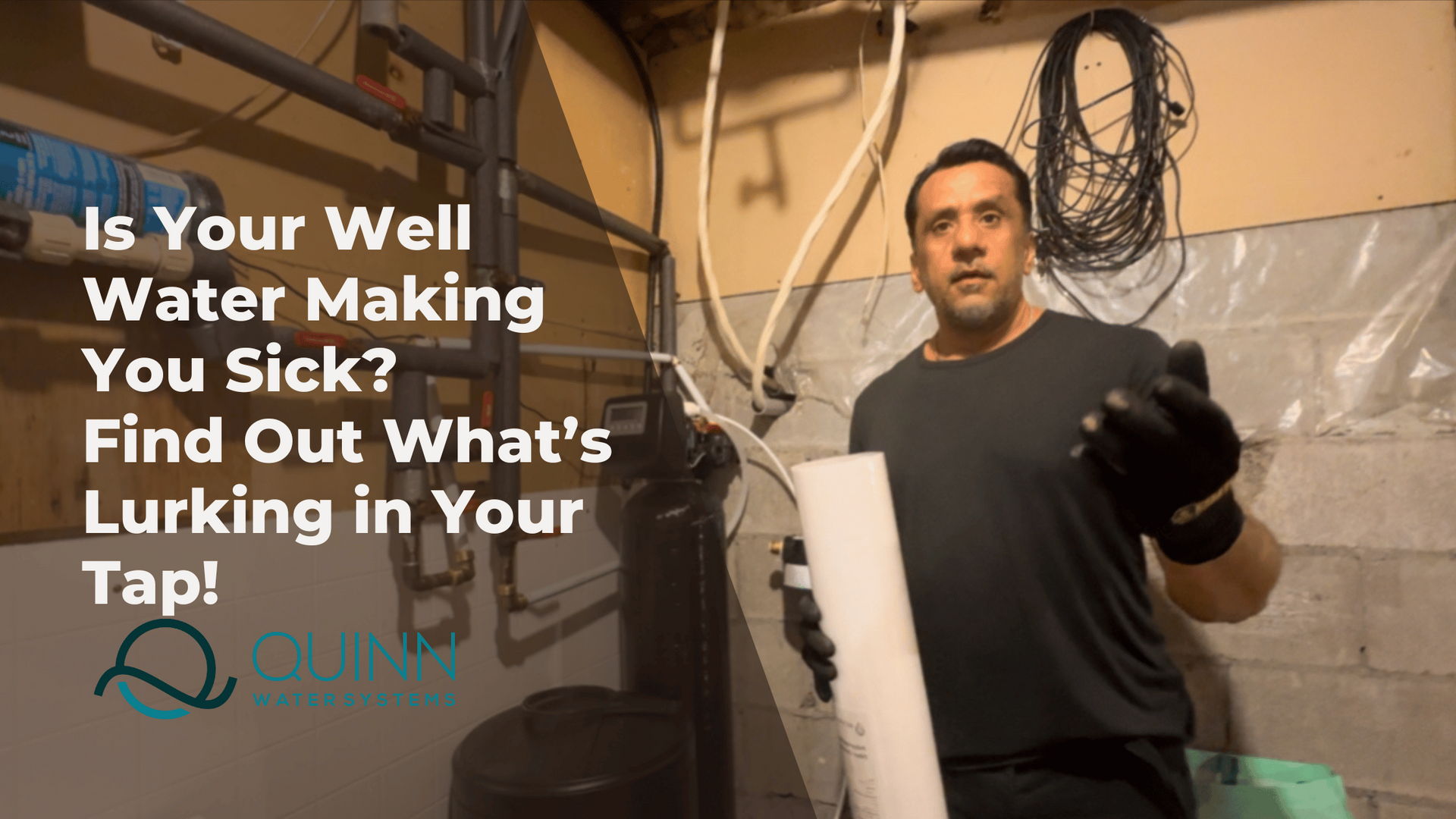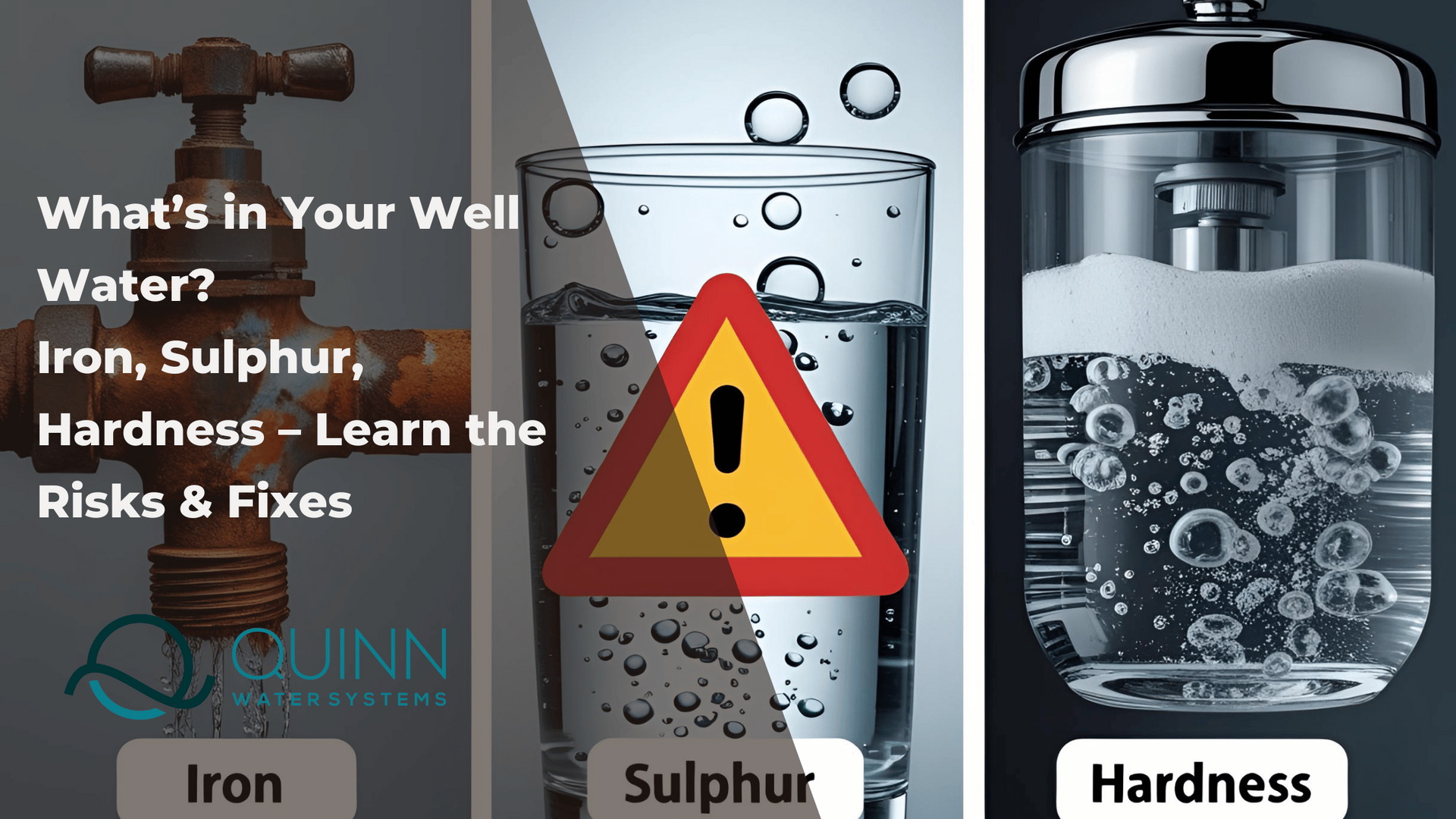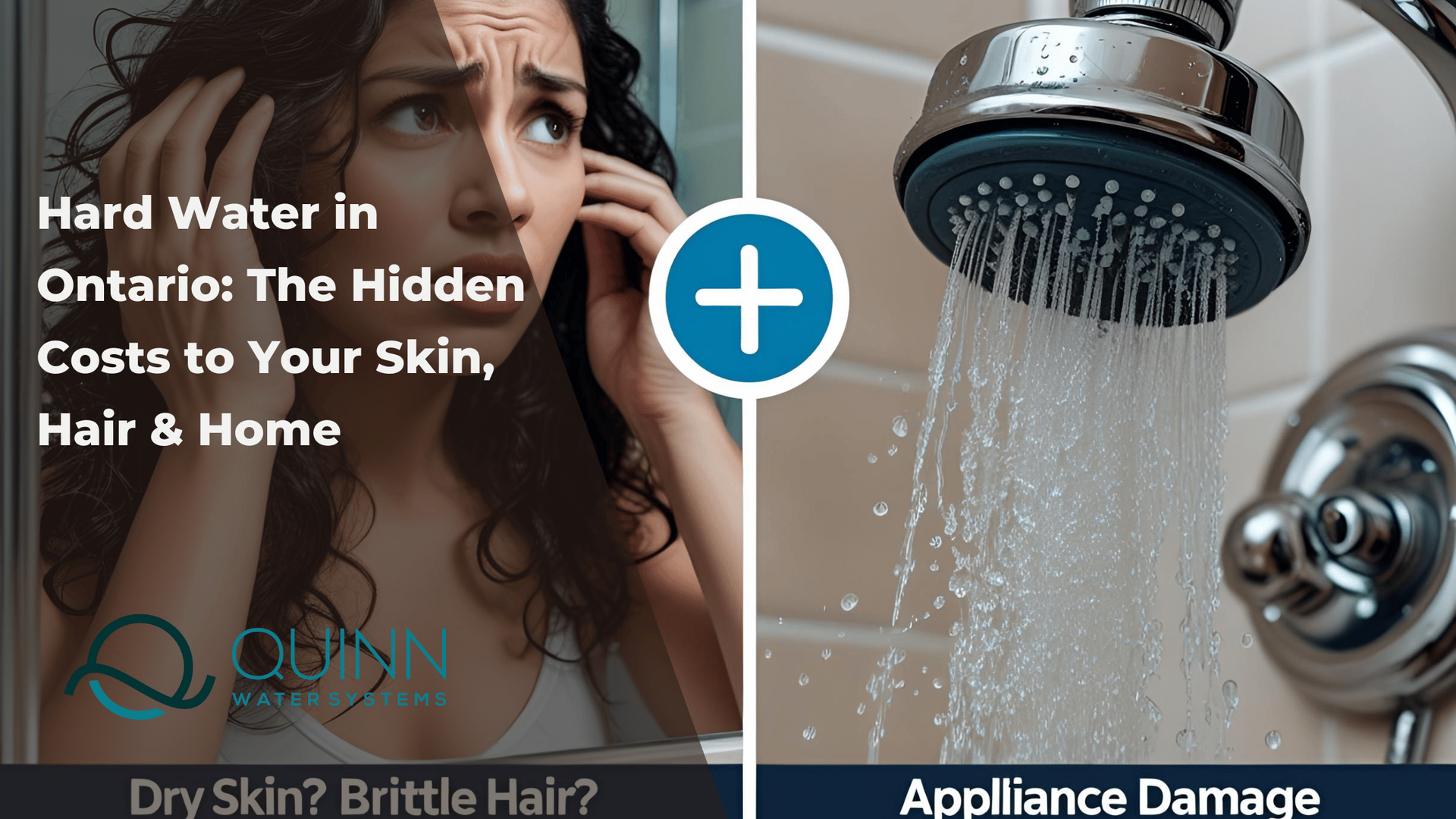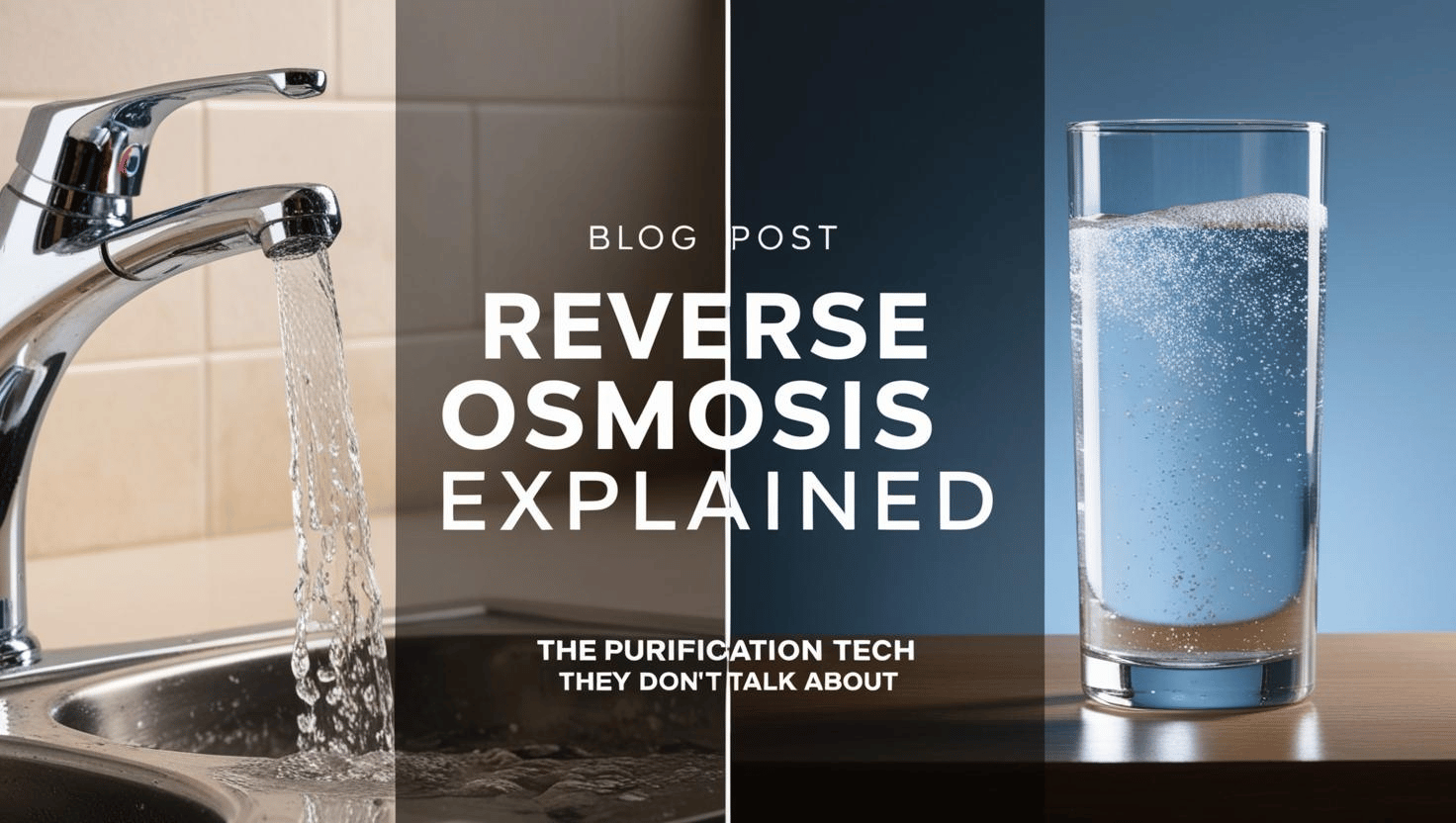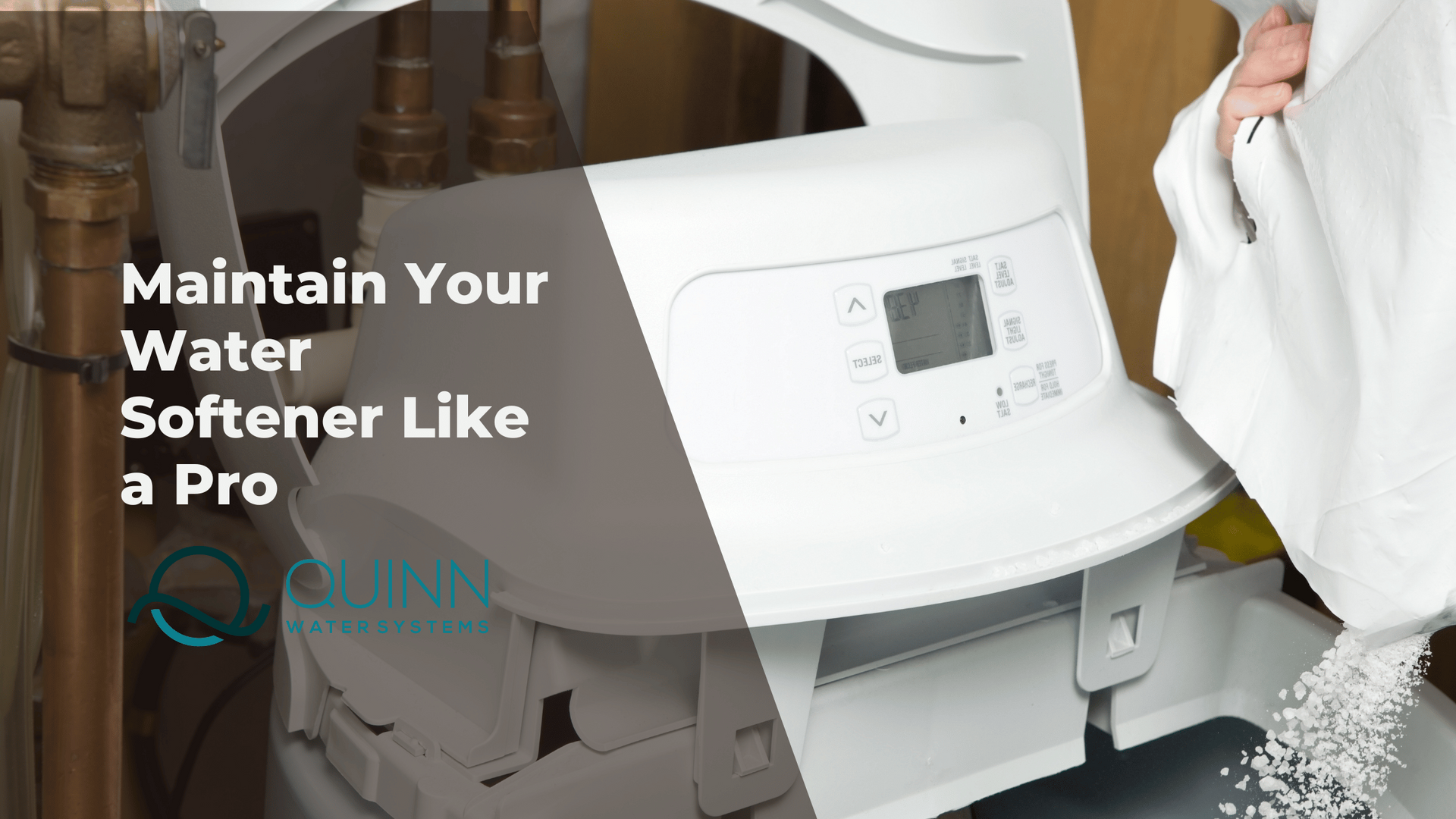Hard Water or Soft Water? How to Determine and Address Your Water Quality
Water quality in Ontario isn't always consistent, and a big factor is whether you're dealing with hard water or soft water. Hard water is mineral-rich and has some extra stuff you might not want, while soft water gets a treatment to give you a smoother experience. In this article, we're going to dive into the differences between these two water types, why it's worth caring about, and how you can figure out which one is in your Ontario home.

What is Hard Water?
Definition and Characteristics of Hard Water:
Hard water is water that contains a high concentration of minerals, primarily calcium and magnesium ions. These minerals are naturally present in the ground and can dissolve into the water as it passes through rock formations and soil. The higher the concentration of these minerals, the harder the water becomes.
Common Minerals and Compounds that Cause Water Hardness:
The most common minerals responsible for water hardness are calcium and magnesium carbonates, often found as calcium carbonate (CaCO3) and magnesium carbonate (MgCO3). Other minerals like iron, manganese, and even aluminum can also contribute to water hardness in some areas.
Signs and Symptoms of Hard Water in Your Home:
- Scale Buildup: Hard water can cause scale deposits on appliances, fixtures, and surfaces. This chalky, white buildup can be found on kettle elements, shower heads, faucets, and even inside pipes.
- Soap Scum: Hard water reduces the lathering ability of soaps, leading to soap scum residue on sinks, bathtubs, and shower enclosures.
- Dingy Laundry: Clothes washed in hard water may appear dull, faded, or dingy, even after thorough cleaning.
- Reduced Appliance Efficiency: Scale deposits in appliances like dishwashers and water heaters can reduce their efficiency, leading to increased energy consumption and potential breakdowns.
Impact of Hard Water on Household Appliances and Plumbing Systems:
Hard water can have adverse effects on various household appliances and plumbing systems over time. The accumulation of mineral deposits can cause clogs, reduced water flow, and even damage to components, leading to costly repairs or replacements.
What is Soft Water?
Soft water is water that has been treated to remove or reduce the mineral content, primarily calcium and magnesium. This treatment process transforms hard water into soft water, making it gentler on surfaces, more effective in cleaning, and beneficial for various household applications.
Methods of Softening Water and Removing Minerals:
Water softening can be achieved through different methods, with the most common being ion exchange. In this process, a whole home Water Softener system exchanges calcium and magnesium ions for sodium or potassium ions, effectively reducing the hardness of the water.
Benefits of Using Soft Water in Everyday Life:
- Longer Appliance Lifespan: Soft water helps prevent scale buildup in appliances, extending their lifespan and improving energy efficiency.
- Cleaner Dishes and Surfaces: Soft water enhances soap's cleaning power, leaving dishes, glassware, and surfaces spot-free and sparkling clean.
- Softer Skin and Hair: Soft water is gentler on the skin and hair, reducing dryness and irritation, and leaving your hair and skin feeling smoother.
- Improved Laundry Results: Soft water enables laundry detergents to work more effectively, resulting in brighter, softer, and longer-lasting clothes.
- The presence of contaminants in water can potentially impact kidney health: In some areas, the water source may be polluted with harmful substances like heavy metals or chemicals, which could affect the kidneys if consumed over an extended period. Using a reliable water filtration system, such as reverse osmosis, can help ensure the water is free from contaminants.
Potential Concerns or Drawbacks of Soft Water:
While soft water offers numerous benefits, some individuals may have concerns about the sodium content added during the ion exchange process. However, modern water softeners use potassium chloride as an alternative to sodium, addressing this concern for health-conscious individuals.
How to decide Hard Water or Soft Water for health benefits
When considering the health benefits of water, the focus often revolves around the cleanliness and safety of the water we consume. While the difference between hard water and soft water mainly impacts your home's surfaces and appliances, ensuring clean and safe water is crucial for your well-being. Depending on your location, water source, and water usage, choosing the right water filtration system can protect you and your family from harmful contaminants, minerals, and unpleasant tastes and odours. Quinn Water Systems offers a range of whole house water filtration systems to provide clean and safe water throughout your entire home.
The Impact of Hard Water and Soft Water on Health:
Hard water and soft water do not have direct health benefits or drawbacks for human consumption. The primary difference between the two lies in their mineral content, which can affect the taste, appearance, and feel of the water. Hard water contains higher levels of calcium and magnesium, while soft water is treated to remove these minerals.
However, the most critical factor for health benefits is ensuring the water's cleanliness and safety. Regardless of whether your water is hard or soft, waterborne contaminants can pose health risks. These contaminants may include bacteria, viruses, fungi, heavy metals, and other impurities that affect the water's taste and smell.
Choosing the Right Water Filtration System:
Investing in a reliable water filtration system is the key to obtaining clean and safe drinking water. Quinn Water Systems offers a diverse collection of whole house water filtration systems designed to remove impurities and ensure the highest water quality throughout your home.
Filtered water provides several health benefits, including:
- Removal of harmful contaminants: High-quality water filters can effectively eliminate bacteria, viruses, and other pathogens, safeguarding you and your family from waterborne illnesses.
- Reduction of minerals and impurities: Filters can reduce the levels of minerals, such as calcium and magnesium, to improve the water's taste and prevent scale buildup in appliances.
- Elimination of unpleasant odours and tastes: Filtering water removes unwanted smells and flavors, providing refreshing and better-tasting water.
What to Do Next:
If you're tired of dealing with the effects of hard water on your home's surfaces and appliances, it's time to take action. Explore Quinn Water Systems' top-of-the-line Water Softeners to address the pesky effects of hard water. Additionally, consider installing a whole house Water Filtration System to ensure that every drop of water in your home is clean, safe, and refreshing.
In conclusion, while the difference between hard water and soft water is not directly related to health benefits, choosing the right water filtration system can have a significant impact on your overall well-being. Ensure the cleanliness and safety of your water by investing in high-quality water filters from Quinn Water Systems, providing you and your family with the cleanest and safest water possible.
Ready to better your well-being?
Share this blog
Blog Posts

